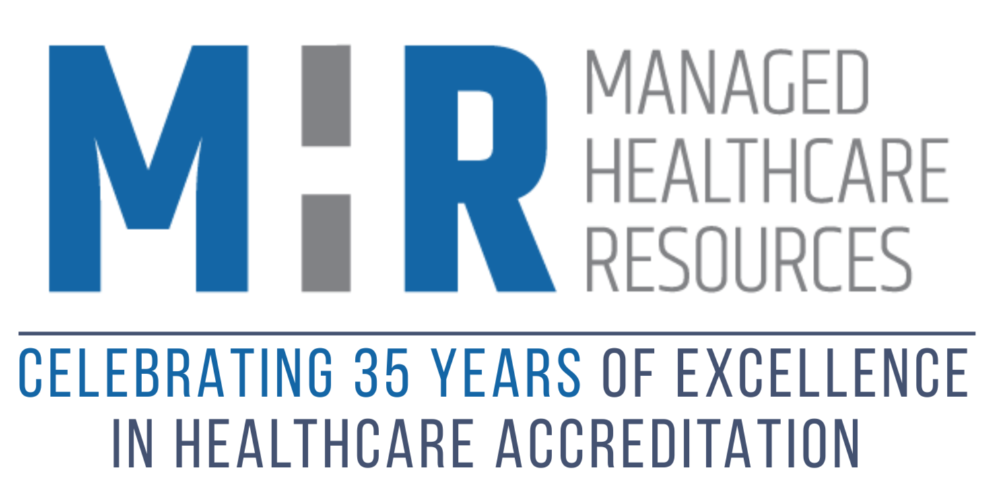
Losing staff who are keenly aware of all things NCQA can be overwhelming unless you strategically plan ahead for this possibility. MHR knows what organizations need to keep them afloat with professionals who can manage the survey process. Planning can help you avoid disruption, save costs, and improve morale.
Consider this story of one organization.
It was just three months before the organization was to submit its Health Plan Accreditation survey. The Project Lead, a seasoned manager with previous experience with NCQA, informed her leadership that she was leaving the organization in two weeks to pursue a new opportunity. While the organization was not new to NCQA accreditation, it did not build bench strength for critical roles, including a Project Lead. High anxiety evolved as leadership contemplated who would manage the survey process. “No one” in the organization knew as much as the person leaving, and the organization could jeopardize its NCQA status if a prompt resolution wasn’t found.
A call came to me at MHR with a request for urgent help. While we agreed to help this organization, there was one stipulation-that our partnership included coaching and training their staff to gain independence for future success. The Agreement was not a one-time “fix.”
Because of MHR’s flexibility, we quickly assembled a team of consultants, assessed their gaps, designed a plan, and were “all hands on deck.” Our primary focus was to assist their staff with getting all documents and files in order. We observed that many SMEs had limited knowledge of the standards, particularly of the detail behind the factors and explanations. The newly assigned Project Lead had limited knowledge and experience with NCQA. There was no plan to manage the turnover of key accreditation staff.
MHR’s side-by-side coaching, collaborating on preparing all documents and files, and deciding how to mitigate risk, propelled this group to submit on time to NCQA. Afterward, having met their urgent need, I followed up with their leadership to advise of a plan to build bench strength to help avoid future issues with staff disruption.
There is no “one plan fits all” to building depth for NCQA, given the uniqueness of each organization. However, you can benefit from the viewpoint of experts like MHR, who emphasize the need to plan ahead.
- Identify roles and individuals critical to your NCQA survey, including executive leadership, physician advisors, management, project leads, SMEs, and administrative support.
- Assure position descriptions include responsibilities relevant to NCQA and that performance goals are specific to their areas. Convey ownership of results.
- Convene a group of SMEs to help develop a curriculum that targets the knowledge, skills, and behaviors necessary to their role.
- Design and implement a plan that includes training on NCQA, coaching, mentoring, and observational and experiential activities, signaling an investment in their learning.
- Arrange for other developmental areas such as project management, managing conflict, escalating issues, or communications as needed.
- Organize practice sessions to build skills, for example, on root cause analysis or how to approach questions if asked by NCQA surveyors.
- Check progress and improve upon your plan as needed.
Here is an example of how this approach can apply to your organization. Your Project Lead observed that some individuals in the Utilization Management (UM) department are not proficient in NCQA UM standards. The Project Lead and Manager collaborate on a plan using these guidelines.
- Designate three individuals as SMEs for Utilization Management (UM).
- Revise their position descriptions and performance goals to include shared responsibilities for all UM data sources and recognize opportunities for quality improvement.
- Develop a curriculum specific to UM that lists in-depth knowledge of the UM standards, how to audit UM files and denial letters for compliance, and being detailed-oriented.
- Arrange for MHR’s Training on the Basics of Accreditation, UM standards, Denials and Appeals, observation of the UM Committee, and reviewing recorded minutes to understand the importance of accurate documentation. Schedule a training session on conflict resolution with the organization’s Human Resources professional.
- Because the SMEs were less experienced with composing denial letters, hold a session on drafting letters assuring all required factors are included.
- Train the SMEs on how to use MHR’s file review spreadsheet to conduct periodic audits.
- Meet quarterly to evaluate progress and adjust the plan as necessary.
Your Call to Action:
- Evaluate all key areas to ensure you have the organizational depth for an NCQA survey
- Collaborate and execute a plan with input from all stakeholders.
- Read our blog from October 12, 2022 for tips on leading a survey
- Consult with MHR, as we are experts in NCQA preparation.
Don’t be caught without a plan to manage the turnover of key accreditation staff. Avoid operational disruption, save costs by avoiding rework and inefficiency, and improve employee morale with increased knowledge, skills, and confidence in their roles.



